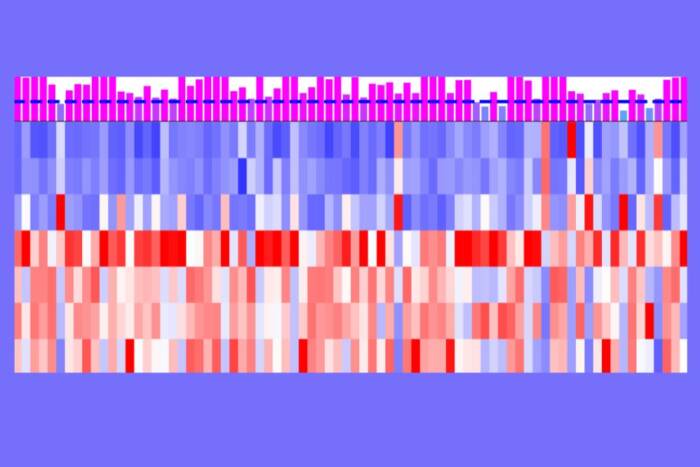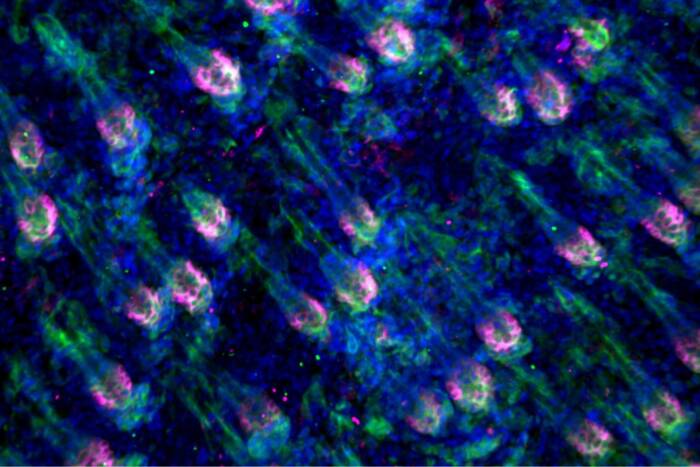Marc Tessier-Lavigne and Jeffrey Friedman elected to American Academy of Arts and Sciences
The American Academy of Arts and Sciences(opens in new window) announced its new class of members today, including two Rockefeller University researchers. Marc Tessier-Lavigne(opens in new window), Rockefeller president, Carson Family Professor and head of the Laboratory of Brain Development and Repair, and Jeffrey M. Friedman(opens in new window), Marilyn M. Simpson Professor and head of the Laboratory of Molecular Genetics(opens in new window), were elected to the honorary society and independent policy research center. They will be inducted at a ceremony in October at the Academy’s headquarters in Cambridge, Massachusetts.

Marc Tessier-Lavigne
A leading researcher in the study of brain development, Tessier-Lavigne pioneered the identification of molecules that direct the formation of connections among nerve cells to establish neuronal circuits in the mammalian brain and spinal cord. The mechanisms he has identified are important for understanding how the human brain forms during normal development and in other processes, including nerve regeneration following spinal cord injury and neurodegeneration, as seen in Alzheimer’s disease.
Tessier-Lavigne joined Rockefeller as its 10th president in March 2011, after several years as executive vice president and chief scientific officer at Genentech, one of the world’s leading biotech companies. He is the recipient of numerous scientific awards and is an elected member of the U.S. National Academy of Sciences and a fellow of the Royal Societies of the U.K. and Canada.
Friedman researches the molecular mechanisms that regulate food intake and body weight. His studies of obesity gained national attention in December 1994, when he and his colleagues published a landmark paper in the journal Nature, in which they identified a gene in mice and humans called obese that codes for a hormone he later named leptin, a hormonal signal that regulates food intake and energy expenditure and has implications for new treatments for obesity.

Jeffrey M. Friedman
Friedman came to Rockefeller as a postgraduate fellow and associate physician in 1980. He received his Ph.D. in 1986 and was appointed to the faculty. He has been an investigator at the Howard Hughes Medical Institute since 1986 and was awarded the Albert Lasker Award for Basic Medical Research and the Gairdner Foundation International Award, among other honors.
The American Academy of Arts and Sciences was founded in 1780 by John Adams, James Bowdoin, John Hancock and other scholar-patriots to provide a forum for a select group of scholars, members of the learned professions and government and business leaders to work together on behalf of the democratic interests of the new nation.
Current research interests at the academy include science and global security, the humanities and culture, social policy and education. Previous generations of inductees include George Washington and Benjamin Franklin in the 18th century, Daniel Webster and Ralph Waldo Emerson in the 19th and Albert Einstein and Winston Churchill in the 20th. The current membership includes some 250 Nobel laureates and more than 60 Pulitzer Prize winners. Twenty-three other Rockefeller University faculty members are fellows of the academy. The new class comprises 198 scholars, scientists, artists and civic, corporate and philanthropic leaders.


